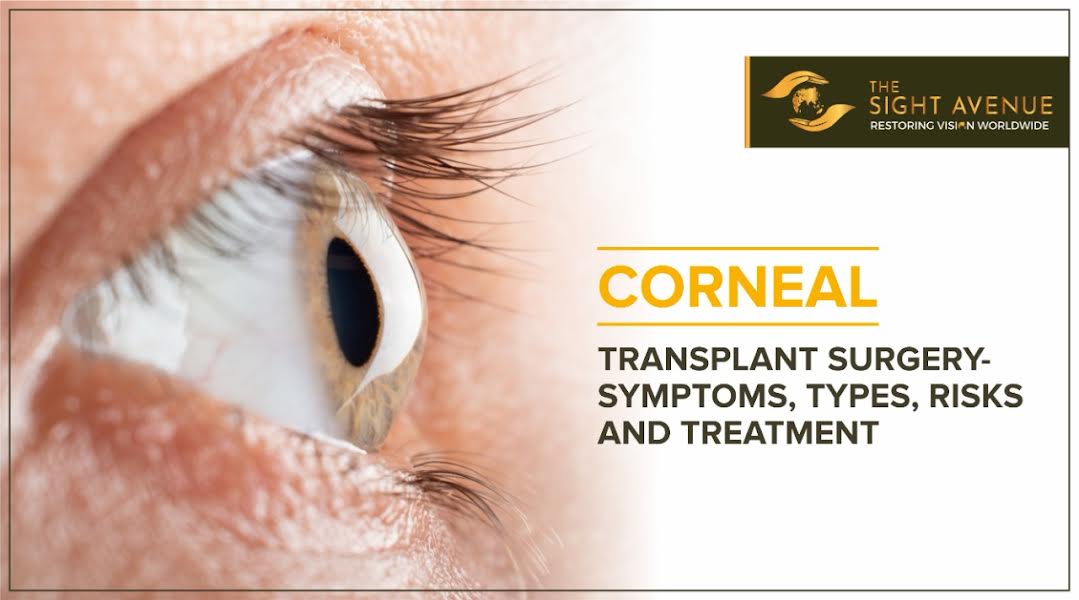Know All About Squint Eyes - Causes, Symptoms, Treatment and Surgery

Squint is also known as strabismus or crossed eye. It is a condition in which the eyes get misaligned. In simple terms, both the eyes point towards different directions, and each eye focuses on a different object.
The affected eye may point downward, upward, leftward, or rightward.
This may happen because of the disorder in the brain or when the muscles that control eye movement are not able to work together.
What are the causes of squint eyes?
There may be different reasons that develop squint eyes. Some of them are discussed below-
1- Hereditary
If anyone in your family has ever been affected with squint eye, you are more likely to develop this condition.
2- Weakness of eye muscles-
These muscles are responsible for controlling the movement of eyes and when they weaken, the alignment of eyes get disturbed.
3- Common vision problems-
If you have been previously affected by cataracts, myopia, hypermetropia, astigmatism, refractive errors, etc, it can cause squint.
4- Injuries-
If there has been any brain injury that led to damaging that part of the brain which controls eye movement, it can lead to a deviated eye.
5- Congenital-
A person may be born with this condition, making it congenital.
Symptoms of squint –
There are various manifestations of this entity.
Have a look at the following points and decide whether you are having squint.
1- Strain in eyes-
If your eyes often feel sleepy and tired, it may be a symptom.
2- Blurred or overlapped vision-
If the images get blurred or overlapped i.e. one upon the other in front of you, it can be a symptom of this condition.
3- Double vision-
This happens when all the objects appear double to you, it is a symptom of your eyes getting misaligned.
4- Difficulty in reading-
If you are facing any difficulty in reading, it may be a warning sign of squint.
5- Pulling sensation-
If you often feel like something is pulling your eyes, you are likely to develop squint.
6- Eyes pointing in separate directions-
If you notice that your eyes are not in the same direction, it is a clear sign that you have squint.
Treatment and Surgery-
Various squint eye treatments are there depending upon the stage of the disease.
Here are some ways to treat squint –
1- Glasses-
First of all, glasses are given to correct the vision disturbances. Special types of glasses known as prisms may also be advised by the doctor. After some time the condition is reassessed to see if there is any improvement or not.
2- Eye patches-
If you have a lazy eye, doctors will advise you to wear a patch in the unaffected eye so that both eyes can align properly. This technique forces the weaker eye to see better.
3- Eye exercises-
You can also be advised to do some exercises to overcome the misalignment of the eyes and strengthen the eye muscles. It includes pencil pushups, brock string, barrel cards, and various other exercises.
4- Injection into eye muscles (Botox)-
Sometimes the injection is given directly to the eye muscles to reduce misalignment of eyes. Local anesthesia is given to numb the eyes before injecting it. Its effect lasts for a maximum of 3-4 months.
- Surgery-
Surgery is done for squint only when other methods of treatment do not work. It can be done in one or both eyes depending upon the type of squint.
Before the surgery-
- A test is done to check whether your eyes are apt for squint operation or not.
- You will be told the details regarding when to come for surgery and what you can/cannot eat or drink before the surgery.
In this surgery, the eyes are held open with the help of an instrument and then a part of eye muscle is detached from the eye and is repositioned such that both the eyes point in the same direction.
There are some side effects of this surgery-
- Redness in eyes
- Pain
- Itchiness
- Double vision
These symptoms tend to disappear in some time and painkillers are also given to alleviate the effect.
So this is all about squint and its treatment.
Always remember- it is a myth that squint gets cured on its own. You need an ophthalmologist to manage this condition. So get it treated before it gets severe.
Recent Post








